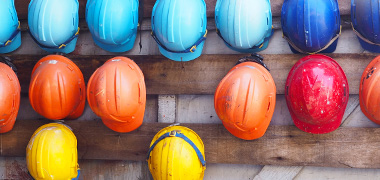
How do I become a fire engineer?
Bachelor of Engineering (Honours) (Civil Engineering)
- There are no mandated entry requirements.








Graduate Certificate in Safety, Risk and Reliability Engineering
- There are no mandated entry requirements.
 Engineering Institute of Technology
Engineering Institute of Technology
Bachelor of Construction Management
- There are no mandated entry requirements.



Bachelor of Engineering (Honours) (Mechanical Engineering)
- There are no mandated entry requirements.








Diploma of Fire Systems Design
- There are no mandated entry requirements.


Related occupations
Fire Protection Engineer
A Fire Protection Engineer designs fire safety systems to protect buildings and occupants, ensuring compliance with safety regulations.
Common questions
How much does a Fire Engineer earn?
In Australia, a full time Fire Engineer generally earns $2,263 per week ($117,676 annual salary) before tax. This is a median figure for full-time employees and should be considered a guide only. As you gain more experience you can expect a potentially higher salary than people who are new to the industry.
What are the job opportunities for a Fire Engineer?
This industry is likely to see a strong increase in employee numbers in coming years. There are currently 6,200 people working in this field in Australia and many of them specialise as a Fire Engineer. Fire Engineers may find work across all regions of Australia.
Source: Australian Government Labour Market Insights
How do I become a Fire Engineer?
If a career as a Fire Engineer interests you, consider enrolling in a Bachelor of Science (Physics). This course covers a range of topics including advanced mathematics, physics fundamentals, general chemistry, foundations in STEM, algebra, calculus, quantum concepts, chemical structures and bonding and electro-magnetics.
Source: Australian Government Labour Market Insights
Further reading


Choosing a security licence course in Australia: A step-by-step guide for jobseekers
10th November 2023)

